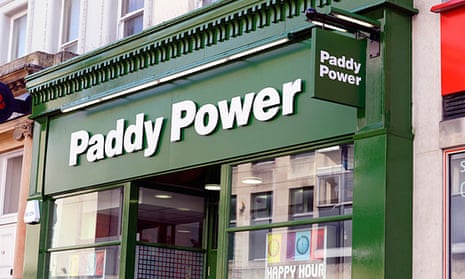When the Betfair betting exchange was launched in the summer of 2000 its founders famously dressed as mourners and staged a mock funeral to mark what they claimed was “the death of bookmaking”. At the time Betfair was just one among several small start-ups testing the possibilities of online gambling. Eighteen months later it was the clear leader in the exchange betting market and growing so rapidly that predictions of doom for bookies suddenly seemed a great deal more plausible.
Betfair has remained the dominant player in the exchange market ever since, with every significant number in its annual accounts increasing year on year. It has added a traditional sportsbook and gaming products, started to buy into the US market and employs nearly 2,000 staff around the world. It has become a major global player in the gambling market from a standing start 15 years ago yet that, it seems, is still not enough. Far from burying the bookie, it has now decided to jump into bed with one and merge with Paddy Power in a deal that will leave its partner with 52% of the shares.
Even in a market that had been expected to consolidate, the merger came as a surprise. Paddy Power’s PR department even sent a joke tweet last month following the announcement that Ladbrokes and Coral are also in merger talks, saying that it was planning to link up with Betfair and rename itself Betty Power. A few weeks later it looks prophetic.
The union between the two companies will create arguably the biggest gambling business in the world and certainly the most aggressive and forward-looking. Paddy Power, too, is a relatively young company, when compared with William Hill and Ladbrokes at any rate, having been founded in 1988, and its business is much less reliant on high-street shops than are its more venerable competitors. Shares in both Paddy Power and Betfair surged following Wednesday’s news, as the market sensed that the merger offers significant benefits on both sides.
Good news for shareholders in a gambling business, however, tends to mean the opposite for the punters. As with the merger between Ladbrokes and Coral, a union between two significant competitors reduces choice in the market and can be expected, over time, to nudge up margins. The Power/Betfair deal, though, also brings together two very different approaches to gambling. Does it, as some loyal customers on Betfair’s internet forum were quick to suggest, mark the beginning of the end for exchange betting, with Paddy Power slowly reasserting the historic dominance of bookmaking?
It could be argued that true exchange betting died back in 2008, when Betfair introduced a 20% “premium charge” on regular big winners, subsequently raised to as high as 60% for some customers. The decision to remove cash direct from players’ accounts when they win more than Betfair thinks is healthy for liquidity was a crushing blow to its carefully-constructed image as a place where winners were welcome.
Even at a time when Betfair was still expanding rapidly the introduction of the Premium Charge suggested that the founders could see a limit to its growth. One employee who had been there from the start explained at the time that “we had to do it”, adding that, “if you could see the numbers we see, you would see why it had to be done”. The implication was that Betfair’s players were sucking liquidity from the exchange so quickly and effectively that at some point in the future new money would not arrive fast enough to replace it.
The Premium Charge does not stop the smartest operators making money, though. It just slows them down, and Betfair should continue to be a refuge for clever punters who cannot get their bets on elsewhere. It will also remain the best option for punters who want the freedom to lay as well as back, and to trade out of positions both before and during an event.
Margins both in traditional and exchange betting are likely to rise slowly over time as the market consolidates though probably not to an extent that anyone but the most price-sensitive punter is likely to notice. It is also worth remembering that the great majority of would-be punters around the world are forced either to bet with illegal bookies, if they want to gamble on sport, or on a pari-mutuel system with double-figure takeouts when it comes to racing. British – and Irish –gamblers enjoy a wealth of options, with relatively low margins thanks to competition (though that is little consolation to the “unprofitable” customers who find it increasingly difficult to get bets on with bookies).
Betfair will not vanish as a result of the merger with Paddy Power, and its prices on popular events will still help to keep the regular bookies honest, odd though it might sound. Reports of the imminent death of bookmaking, however, are now finally proved to have been wildly premature.
